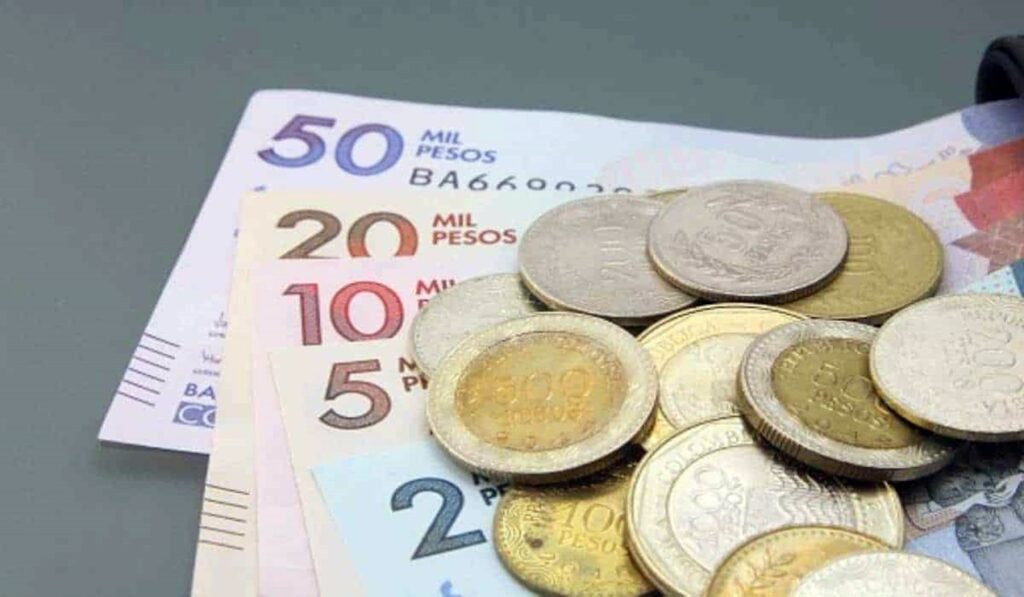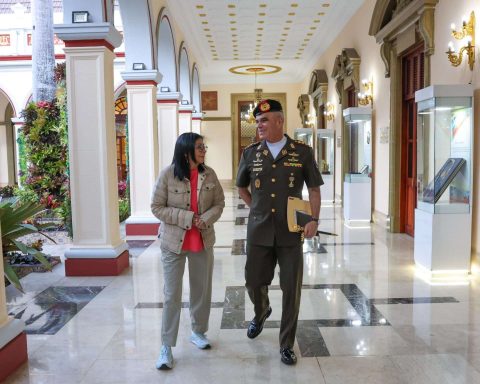
It was not one but two appeals that the Copiapó Court of Appeals accepted and that allowed the lithium bidding process to be temporarily suspended, through an order not to innovate. One of them is the one presented by the governor of Atacama, Miguel Vargas, and the other was filed by representatives of native peoples, on January 12.
In it are the signatures of Ercilia Araya, president of the Pai Ote Community, from Atacama; Esteban Araya Toroco, president of the farmers of Lay Lay, from Calama; Nancy Piñones Ormazábal, president of the Elba Sanjinés de Huara Community; Verónica Enríquez Antimanqui, from Futa Trawun, from Paillaco; Rafael Tuki Tepano, from the Rapa Nui people; and Ariel León Bacián, from the Quechua people, who drafted the appeal.
The main objective is to revoke the entire bidding process, on the basis of a breach of ILO Convention 169, which protects the holding of an Indigenous Consultation, which –as they explained– is prior to the environmental assessment process and should have been carried out even before submitting the bidding conditions to the Comptroller.
in conversation with The counter, Ariel León Bacián –who has been an advisor to the Constitutional Convention and the Senate– sincerely stated that they know that lithium will be exploited in the same way, but that they want it to be done with respect for the human rights of the indigenous communities and peoples, without destroying the environment and respecting ceremonial sectors of indigenous communities. The appeal is in favor of the Pai Ote Colla community and all those indigenous persons and communities that inhabit the territories in question.
The document states that “this tender, as it is designed, will affect the people in whose favor it is appealed, since the tender has no geographical limit within the territory of Chile and, therefore, it can be invoked in any territory where there is lithium, be it the Atacama, Maricunga, Coipasa, Huasco salt flats, or others”.
-How was the response of the Court of Appeals of Copiapó and what is the expectation of what is coming now?
-For us the resolution of the Court of Appeals of Copiapó is important, because it is a brave decision. We believe that it is also due to the force of our arguments, because the violation of fundamental rights by the Ministry of Energy and Mining is flagrant, it is evident.
The Indigenous Consultation is a right that is enshrined in ILO Convention 169, it is recognized in all international treaties. In Chile, Convention 169 has been in full force since 2009, there is a cumbersome jurisprudence in the Supreme Court in relation to the Indigenous Consultation and the State. Successive governments have not tired of violating that right and this is one more case. We, last year in the Supreme Court, achieved a victorious ruling against Minister Juan Carlos Jobet for violating the Indigenous Consultation against 11 Mapuche lof from Alto Bío Bío. This is not new, it is a behavior that the State commits on a recurring basis.
The violation is given by the fact that the lithium tender imposes mining on indigenous territories. Article 7 of Convention 169 states that indigenous peoples have the right to our own development plans, and if the State has an alternative development plan to that of indigenous peoples, it has to consult it, and while the lithium tender imposes mining without Check it out, it’s illegal.
Unfortunately we are already getting used to this type of violation and having to resort to justice to be able to conjure against it.
-In the process of the allegations, do you think you have enough background to completely stop the process?
-What we asked for in the appeal was the revocation and annulment of the entire process, because one of the requirements of the Indigenous Consultation is that it be prior and, therefore, if the consultation was not carried out, the entire process is flawed, because it was not done in accordance with the legal formalities, and they are formalities that cannot be corrected with a subsequent act.
Therefore, the act of bidding was not consulted. Even the very publication of the bidding conditions did not have the opinion, with the expression of will to approve or deny or modify the original peoples. Therefore, the entire process is null and void, and the Supreme Court and the environmental courts have declared it many times regarding decrees without consultation, administrative resolutions without consultation and, also, regarding resolutions of environmental qualifications without consultation.
We are asking for the annulment, that the entire process be revoked, that it be without effect.
-One of the Government’s arguments, and what Minister Jobet said, is that an Indigenous Consultation or consultation with other communities was not carried out because a place of exploitation has not yet been defined, that this stage is only to allow exploration.
-We believe that the minister is wrong, because when you evaluate a project environmentally, you make a Consultation, it is true, but that consultation is reduced only to environmental effects, only to pollution. In this case, we are requesting a prior consultation, which is related to the development plans. That is to say, the original peoples have the right to decide, in accordance with international treaties, if they want to live from agriculture, tourism or livestock. And, in this case, what was done was to impose mining on them. That has nothing to do with the environment and it is a different query, aside from that, which has to do with development plans.
That consultation should have already been done, before the tender, before dictating the bidding rules, before deciding whether to tender lithium or not. The minister is referring to an environmental consultation, but this is another consultation.
-How does a lithium extraction project affect an indigenous community in the concrete and daily life?
-It’s disastrous. As mining has been practiced until now, in an extractivist manner, it has been absolutely harmful to the communities. There in Atacama, the Pedernales salt flat, there are penalties for mercury contamination from some mining companies that exploit copper or extract gold.
In the case of lithium, it is the extraction of water, in an area where there is climate change, water emergency decrees, where there is a drought, the worst in recent years. However, it is not the only effect. The presence of mining in the territories destroys sacred places, destroys valuable places for the native peoples, which are ceremonial places. The Maricunga salt flat is a place where the Colla people perform ceremonies, the Pai Ote community has studies that prove this, as well as the ancestral position of the Maricunga salt flat. And it is going to be directly affected because they destroy the landscape, it prevents the carrying out of cattle ranching, of livestock activities, it cuts off transhumance routes with the highways. There is a series of pernicious effects that are sufficiently dated and studied, it is not something new.
The Atacama Environmental Assessment Service has rejected projects and has also badly approved others. We believe that the institutional framework has always been a must, because there are projects that should not have been approved and that are operating in the Atacama Region with serious violations of the communities.
-Minister Jobet also said that, while this discussion was taking place, the other lithium-producing countries win. The governor of Atacama assured that it is not that they do not want the country to be competitive, but rather that, to be competitive, things must be done well. What is your vision on that?
-Regarding the development of Chile, we believe that it must adjust to human rights. Chile’s development must respect the fundamental rights of all Chileans, and we, the original peoples, are tired of being sacrificed time and again in pursuit of Chile’s development.
The development of Chile was built with the wealth stolen from the native peoples, land and water, agriculture, livestock and, now, mining. So, what we say to the minister is stop being a thief, stop stealing, because his ministry is a colonial ministry, which manages mining and energy that belongs to the original peoples. We are willing to share them, but in fair conditions, so that they do not destroy the environment.
The native peoples are not necessarily anti-mining. The Colla people, the Quechua people, make trinkets, but in a sustainable way, without destroying the environment, without harming anyone.
In historical perspective, Chile has suffered its main mining traumas. We know that these foreign powers, these companies, are capable of killing us in order to extract lithium, we give them the same, they don’t care about us. They don’t even care which country controls those territories, what they want is money.
We know that lithium is going to be extracted yes or yes, but lastly do it in justice, that they do not destroy the environment, that they do not destroy the salt flat, that they do not destroy the native peoples, that they allow us to live in a territory in which we have always lived, and that also leave benefits to the community. What mining usually does is exploit, they don’t leave any resources and they take everything abroad, they don’t leave anything to Chile and less to the native peoples.
In that correlation of powers where we know that we are at a disadvantage, we know that we are not going to be able to stop the power of these superpowers that want to appropriate lithium. The money goes abroad. What we hope is that it be done with respect for the fundamental rights of indigenous peoples, that it not be done through the death or disappearance of indigenous leaders, or by destroying culture.
-How do you see the times of the Government? Some experts say that this process could have been done 2 years ago, not months after finishing the administration.
-I believe that there is a desperate business, where the President surely has some interest. He and his partners.
















